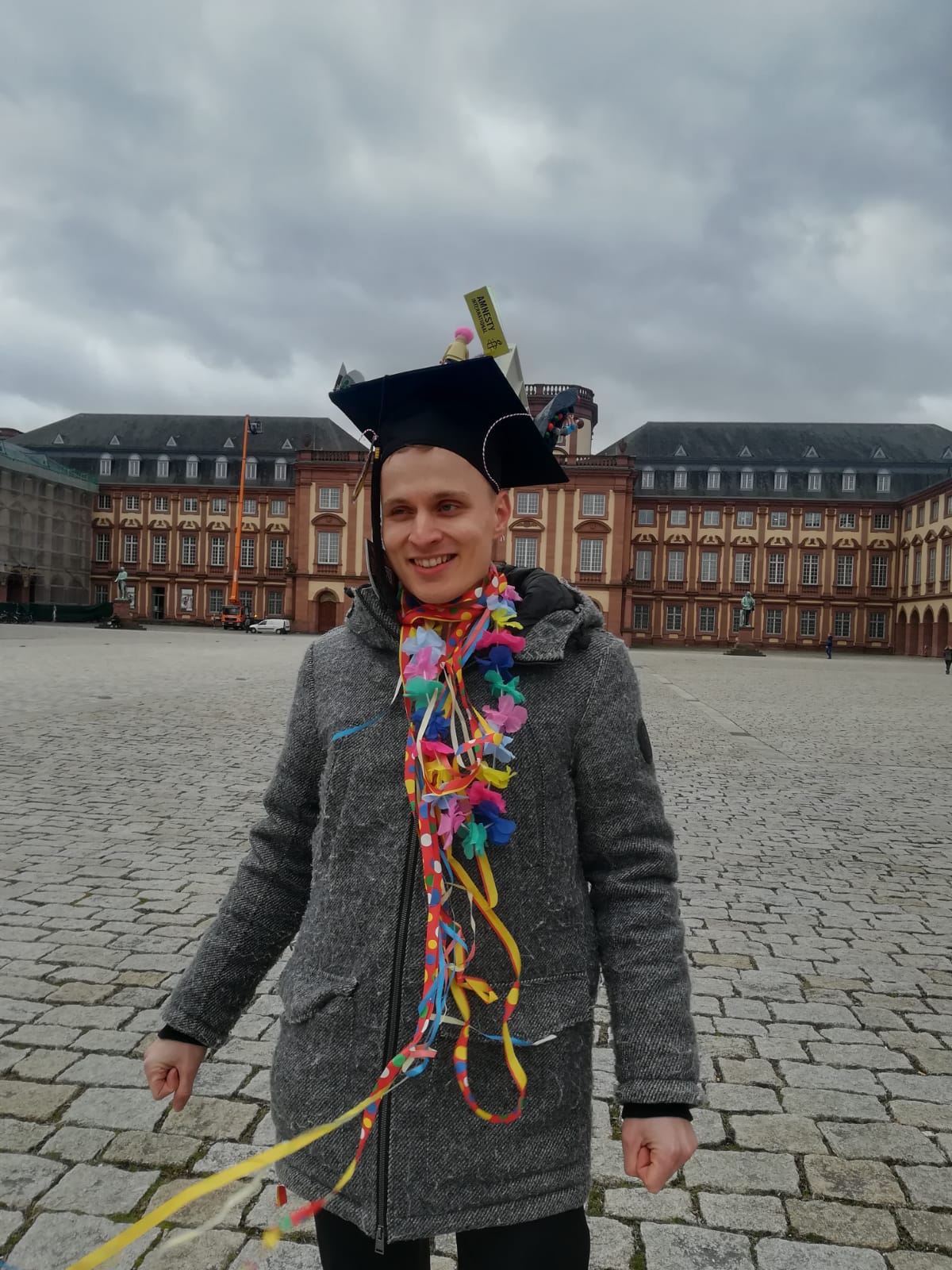Welcome
Hi! I am a postdoctoral research fellow at the University of Zurich and lead investigator in the project „An Empirical Study of the United Nations Human Rights Complaint Mechanisms“ funded by the Swiss National Science Foundation (SNSF) . I hold a PhD degree from the University of Mannheim and an MPhil degree from the University of Oxford. I’m particularly interested in the empirical study of international organizations and human rights violations. In my doctoral dissertation (defended in February 2022), I conducted an empirical and conceptual study of political imprisonment. My research has been published in the Journal of Politics, International Studies Quarterly, Journal of Peace Research, Journal of Conflict Resolution, Journal of Global Security Studies, and the Review of International Organizations, among others. I also published blog posts and policy briefs on platforms such as the Washington Post Monkey Cage, Political Violence at a Glance, and the Oxford University Politics Blog. My research was awarded with both the Palmer Prize and the Will H. Moore Prize by the Peace Science Society International and with the NEPS medal by the Network of European Peace Scientists.
In the article „Elitist Remedies? Complaint Resources and Representation in International Human Rights Bodies“ I argue that socioeconomic factors shape whether human rights abuses translate into complaints to international human rights mechanisms. To seek international remedy, victims of human rights abuse must be aware of remedies, and they require complaint literacy to file complaints. Alternatively, they need ties to skilled networks that might represent their cases. Such complaint resources are systematically shaped by socioeconomic factors, implying that international human rights remedies tend to represent a self-selection of economic elites. The theoretical argument is supported by evidence on the national and the individual level. I test the theoretical framework both on the national and individual levels with novel data on the human rights complaint mechanisms operated by the UN Special Procedures (UNSP). While this mechanism is universally open, the follow-up statements of the UNSP reflect socioeconomic disparities. On the national level, human rights abuses translate into more UNSP statements directed at richer countries. On the individual level, lawyers and professors tend to be more likely to be covered by the UNSP. The findings suggests that international human rights mechanisms struggle to reach marginalized groups in low-income countries. For policy implications based on this study, please check out my Policy Perspective of the Center for Security Studies at the ETH Zurich.
In my article „The duration of political imprisonment: Evidence from China„ I investigate which factors shape how long Chinese political prisoners remain in detention. The Chinese regime is well-known for the large-scale detention of dissidents and ethnic minorities. However, little is known about the fates of Chinese political prisoners. I argue that the duration of political imprisonment is shaped by (a) the perceived threat of individuals’ actions, and (b) their ethnic and religious identities. Drawing on the Chinese political prisoner database, I investigate predictors of the duration of political imprisonment with survival models. Since preceding actions shape detention times, I hand-code each prisoner’s criminalized actions that led to incarceration. The evidence suggests that the Chinese regime conditions the duration of political imprisonment on prisoners demands and their collective action potentials. The findings further demonstrate that ethnic Uyghurs and Tibetans are significantly longer imprisoned than non-minority political prisoners. Additional analyses demonstrate that ethnic Uyghurs are also significantly more likely to die in prison. The article has been awarded with the Glenn Palmer Prize for the best article published in Conflict Management and Peace Science in 2023.
In my article „Who is a political prisoner?“, I develop a novel conceptual basis for academic research on political imprisonment. I identify the key dimensions of disagreement in previous academic conceptualizations of political prisoners. Definitions of political prisoners differ primarily with regard to (1) the source of politicization, (2) the timing of politicization, (3) the question of nonviolence, (4) the inclusion of identity prisoners, and (5) the criteria for biased state actions. I argue that the term political prisoner should be exclusively reserved for victims of politically biased trials while remaining agnostic about prisoners’ individual motivations. Otherwise, each politically motivated action ranging from right-wing extremism to jihadism would qualify individuals as political prisoner. Further, I emphasize that the concept of political prisoners is never a purely empirical category as it relies on the assumption that there are extra-state principles that limit legitimate state action. Since the specification of these principles cannot occur in an apolitical vacuum, the concept relies inherently and necessarily on a normative-political premise. I call for a common benchmark grounded in international law, to make political imprisonment comparable on a global scale.
In the publication “Spoilers of peace: Pro-government militias as risk factors for conflict recurrence”, we show that conflicts where pro-government militias are deployed as counterinsurgents are more likely to recur. We argue that militiamen develop incentives to spoil post-conflict peace since they are usually absent in peace negotiations between rebels and governments. Further, disarmament and reintegration programs tend to exclude pro-government militias. Drawing on statistical simulations, propensity score matching, and logistic regression models, we find empirical support for our claims.
